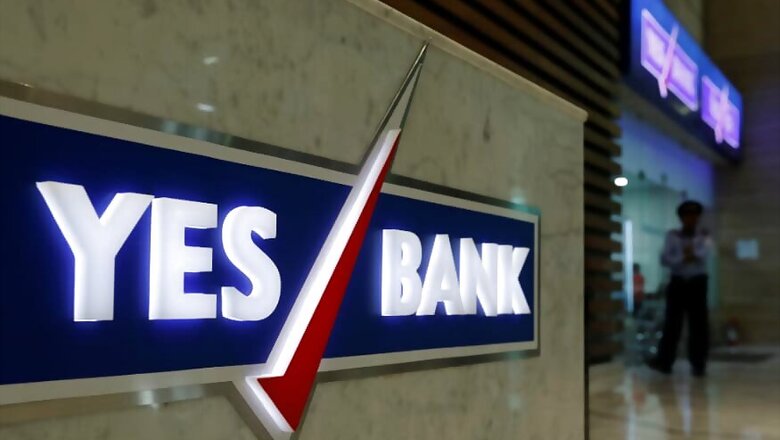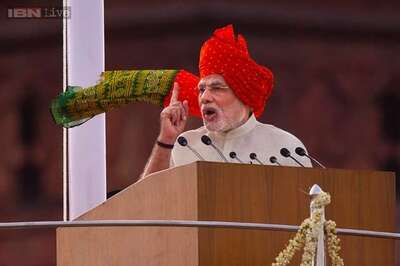
views
Shares of Yes Bank slumped nearly 13% in intraday trade on Thursday after foreign brokerage UBS cut its target on the stock to Rs 90, down 47% from its earlier forecast of Rs 170. At 11:50am, shares of Yes Bank were trading at Rs 119.10 apiece, down 11.6%, on BSE.
UBS downgraded the Yes Bank stock to ‘sell’ due to greater-than-expected risks from bad loans and moderating loan growth. A sharp turnaround for Yes Bank is less likely to fructify, according to UBS.
The brokerage firm raised FY20 credit cost estimate for Yes Bank to 250 basis points from 200 basis points earlier, higher than the management guidance of 125 bps. UBS also lowered the bank’s earnings estimates by 79% for FY20. Earlier on Tuesday, global rating agency Moody’s had also placed Yes Bank’s foreign currency issuer rating of Ba1 under review for downgrade as it feared that liquidity pressures on finance companies may negatively impact credit profile of the bank.
Moody’s also said it expected significant pressure on Yes Bank’s asset quality and, therefore, profitability and capital position in the near future. “In April, the bank classified about Rs 10,000 crore of its exposures, representing 4.1% of its total loans under watch-list, which could translate into non-performing loans over the next 12 months. Nevertheless, the impact will be somewhat cushioned by the bank’s proactive loan loss provisioning for anticipated stress,” it explained.
The Yes Bank stock has also remained under pressure after two directors decided to resign from their post in the current week. A day after the resignation of non-executive director Ajai Kumar, non-executive independent director Mukesh Sabharwal also stepped down from the board on 11 June.
In its AGM on Wednesday, Yes Bank CEO Ravneet Gill promised shareholders that the management would make every effort to keep their trust, focus on risk management, and restore the bank to its old glory. He also said that the bank’s asset quality issues were being blown out of proportion.
Late night on Wednesday, Yes Bank also issued a clarification to stock exchanges denying an Economic Times report that suggested that founder Rana Kapoor demanded a board seat and compensation that triggered directorial exits by independent members.




















Comments
0 comment